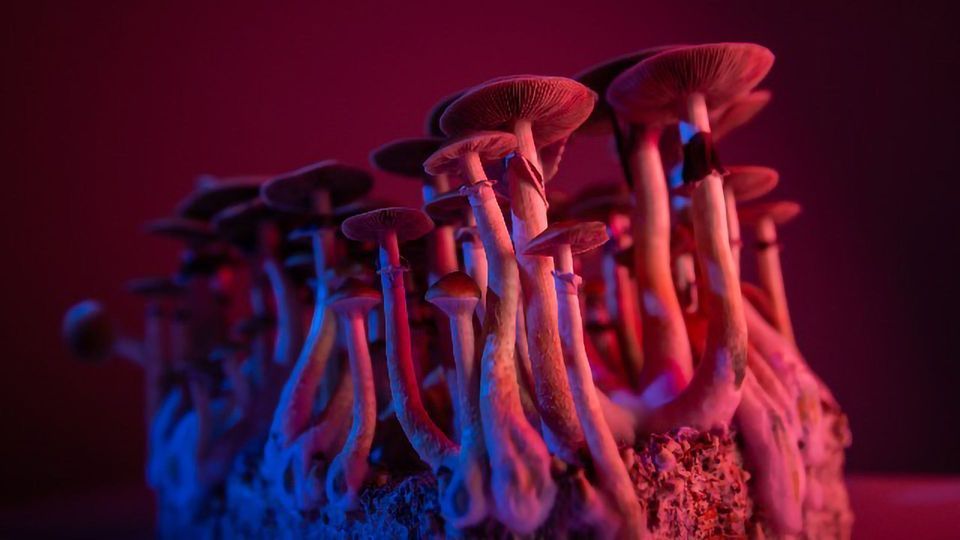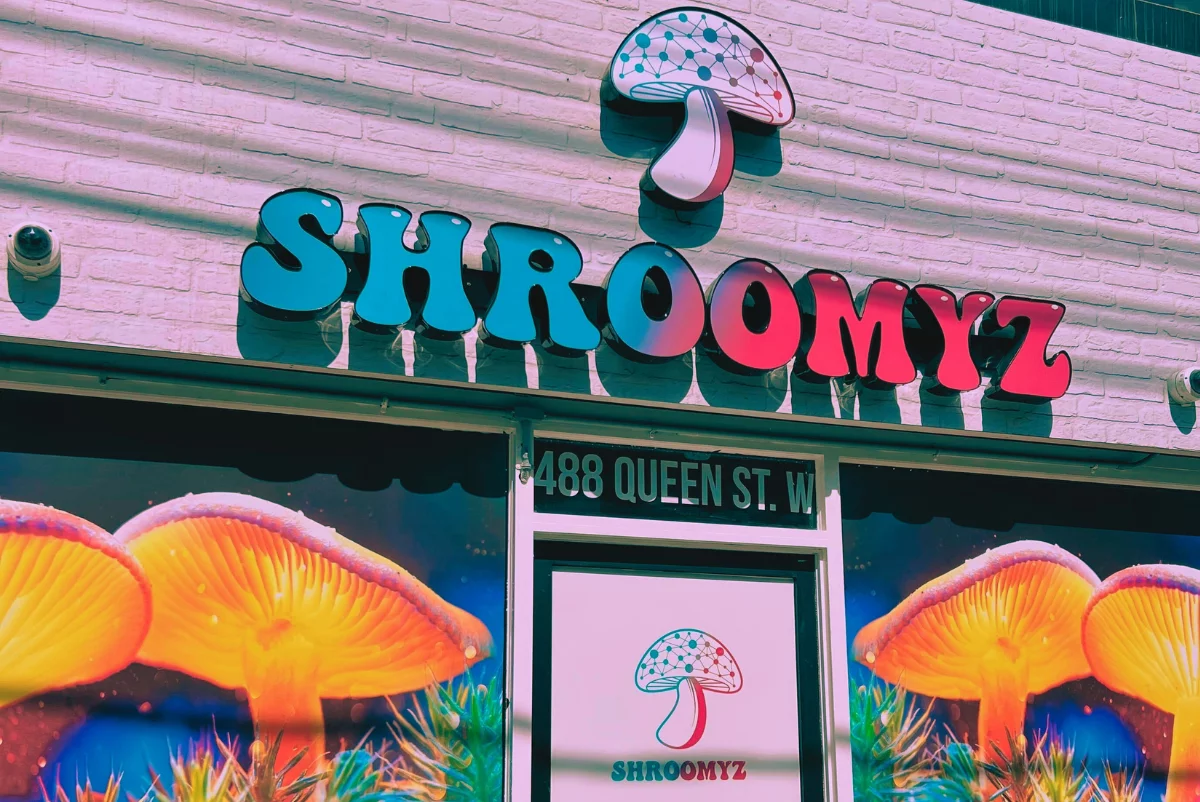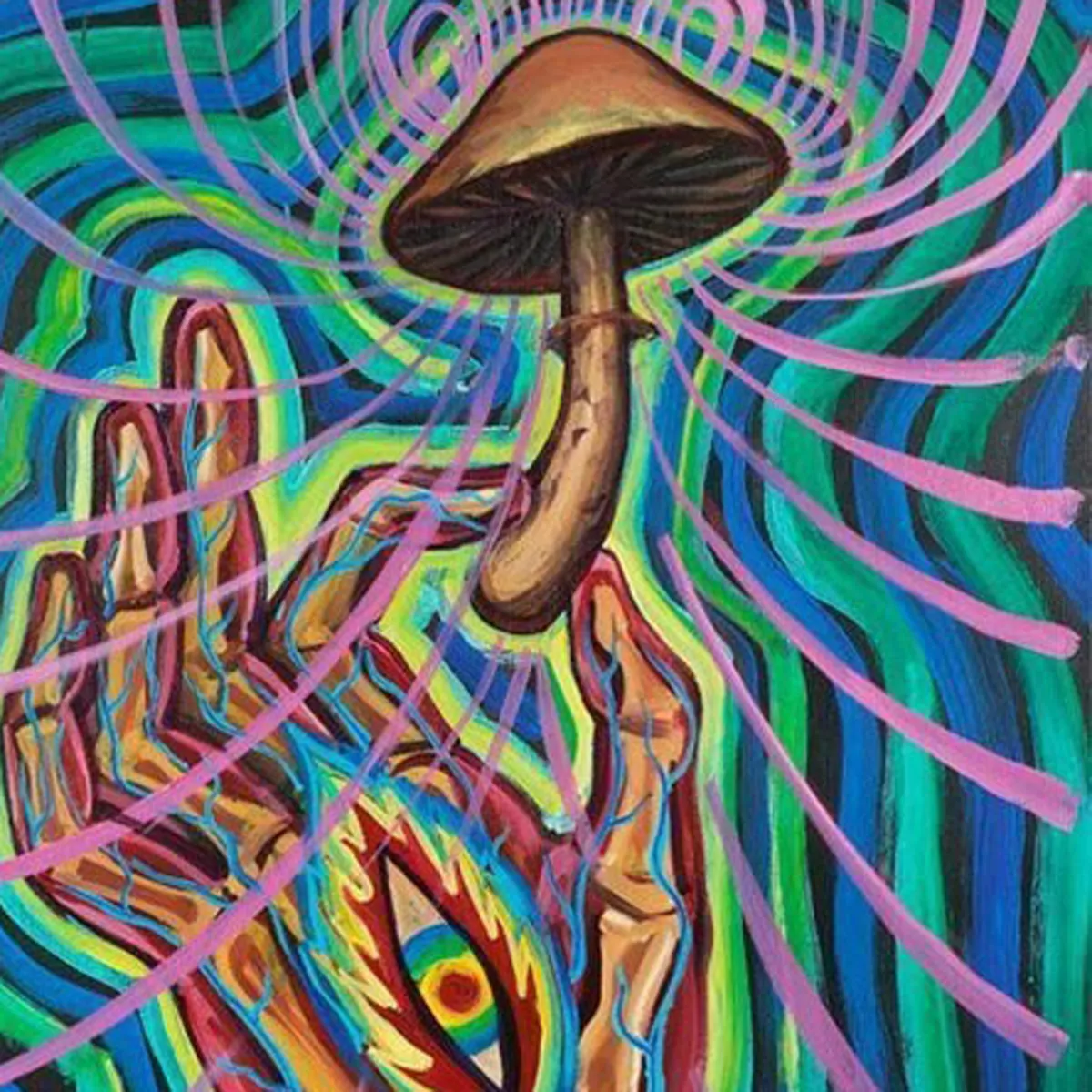Psychedelics (also known as hallucinogens) are a category of psychoactive drugs that, as the name implies, can cause hallucinations. They alter perception, mood and cognitive process. More than that, they’ve become an aesthetic. Rick and Morty and Courage the Cowardly Dog come to mind as well as culturally appropriating the evil eye symbol, but that’s another story. LSD, mescaline, and psilocybin work by interfering with the interaction of nerve cells and serotonin. Unsurprisingly, these are illegal in many countries, states, and provinces. However, as we’ve seen with other psychoactive drug subclasses, legality can shift.
The seven types of psychoactive drugs are:
- Depressants
- Stimulants
- Hallucinogens
- Narcotic Analgesics
- Inhalants
- Cannabis

Many people have negative associations with the terms psychoactive and hallucinogens. Others will find excitement in the descriptions. Though we must remember not to think in such dramatic binaries. Psychoactive drugs are not as feared as we may think; in fact, caffeine is classified as a psychoactive drug. It is classified as a stimulant with addictive properties that can lead to physical dependence. When you walk into a grocery store, there is usually a section for alcohol, which is a depressant. There seems to be a marijuana dispensary on every corner. Doctors prescribe fentanyl, and rows of permanent markers can be found in any craft store. People hear “drugs” and assume the worst when it may be better to just decriminalize them altogether.
Now, why are psychedelics illegal in the first place? It has little to do with the harm caused by using these drugs and more to do with who was using them. Anti-opium legislation was aimed at Chinese immigrants working on the transcontinental railroad. In the South, anti-cocaine laws were used to target Black men because it was believed that cocaine made them murderous. The suspicion of cocaine intoxication would then be used to justify some lynchings. Mexican immigrants were targeted by anti-marijuana legislation. Substance use was used as a symbol of youthful rebellion, social upheaval, and political dissent in the 1960s and continues to be so today.
Since then, new opportunities have arisen with each new administration. Instead of a war on drugs, we are witnessing a more compassionate approach to problematic drug use. Portugal has decriminalized all drug use, possession, and acquisition in public and private, taking a public health rather than a public order approach. Portuguese reform allows drugs to be treated as a health issue rather than a criminal justice issue by accepting the reality of drug use rather than simply hoping it will disappear as more people are arrested. This means that drug-related deaths and overall drug use rates have decreased and have remained below the EU average. Furthermore, the proportion of prisoners sentenced for drug use has decreased.
Portugal is not the first country to decriminalize some or all drugs. However, it is one of the most influential and prominent. Decriminalization of all drugs reduces the burden on addicts and recreational users while freeing up resources in the justice system. And, as we all know, legalization does not prevent people from using drugs, but resources can help ensure that they do not die as a result of doing so.
Similar to dispensaries that opened before marijuana was legalized, mushroom dispensaries have begun to open despite the fact that selling psychedelic mushrooms is still illegal in Canada. The number of storefronts is expected to increase exponentially, similar to the wave of unregulated marijuana dispensaries that preceded legalization. Shroom demand is also increasing online, with Instagram-based dispensaries marketing microdoses to people seeking anxiety relief. All of this is happening at a time when psychedelic research is expanding, jurisdictions are legalizing and decriminalizing mushrooms, and big weed investors are investing in psilocybin companies.

Some people who microdose may not feel high at first but will notice subtle changes in their mood, whereas others may take enough to feel a body high without the hallucinations and intensity of a full dose. However, if a person wishes to obtain higher doses from these dispensaries, they must present documentation demonstrating that they have a medical condition that can be treated with mushrooms.
While the legal status of mushrooms in Canada has not changed as a result of these dispensaries, the government is known to grant exemptions allowing terminally ill patients to use the drug and health practitioners to be trained on how to guide patients through a trip. This is the same path that was taken when marijuana was legalized. It all began with decades of court challenges, beginning with medical patients. By granting exemptions to some and not others, the government is making value judgements on who can and can’t receive help. Despite the fact that there have been many limitations in conducting studies, the research we do have shows that psilocybin does not cause further physical or mental dependency, commonly explored as beneficial in relieving fear and anxiety.
 However, with the proliferation of dispensaries, it is critical to note the racial disparities. White people don’t have to fear the law in the same way that racialized groups do. There is also the implication of establishing dispensaries without assisting the communities most harmed by the criminalization of psilocybin mushrooms. Higher incarceration rates in these communities are not due to widespread drug use, but rather to law enforcement’s focus on low-income, racialized, and minority communities. There is also a risk when using these drugs alone or in an unsupervised environment. Decriminalization could help to overcome both obstacles. Decriminalizing drugs also allows more people to receive drug treatment when it is appropriate, and it redirects law enforcement resources to resources that build healthier communities. If we can admit that certain criminalized drugs are safe in small doses and for those suffering from terminal illnesses, what stands in the way of legalization and aid to the rest of the population?
However, with the proliferation of dispensaries, it is critical to note the racial disparities. White people don’t have to fear the law in the same way that racialized groups do. There is also the implication of establishing dispensaries without assisting the communities most harmed by the criminalization of psilocybin mushrooms. Higher incarceration rates in these communities are not due to widespread drug use, but rather to law enforcement’s focus on low-income, racialized, and minority communities. There is also a risk when using these drugs alone or in an unsupervised environment. Decriminalization could help to overcome both obstacles. Decriminalizing drugs also allows more people to receive drug treatment when it is appropriate, and it redirects law enforcement resources to resources that build healthier communities. If we can admit that certain criminalized drugs are safe in small doses and for those suffering from terminal illnesses, what stands in the way of legalization and aid to the rest of the population?

